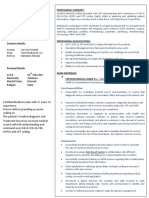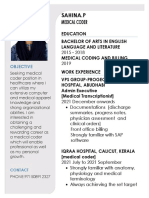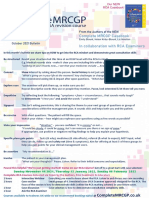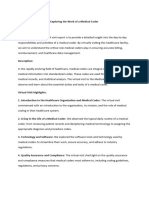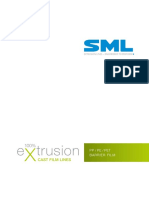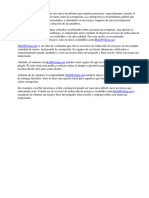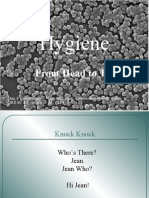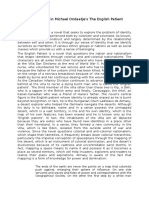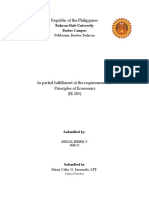0% found this document useful (0 votes)
32 views4 pagesClinical Coding Interview Guide Sabahat Updated
This document is a guide for Clinical Coding interviews, providing common questions and sample answers aimed at fresh graduates. It includes personal introductions, general interview questions, and additional questions related to medical terminology and remote work capabilities. The guide emphasizes the importance of accuracy, confidentiality, and a willingness to learn in the clinical coding field.
Uploaded by
sabahatzameer8Copyright
© © All Rights Reserved
We take content rights seriously. If you suspect this is your content, claim it here.
Available Formats
Download as DOCX, PDF, TXT or read online on Scribd
0% found this document useful (0 votes)
32 views4 pagesClinical Coding Interview Guide Sabahat Updated
This document is a guide for Clinical Coding interviews, providing common questions and sample answers aimed at fresh graduates. It includes personal introductions, general interview questions, and additional questions related to medical terminology and remote work capabilities. The guide emphasizes the importance of accuracy, confidentiality, and a willingness to learn in the clinical coding field.
Uploaded by
sabahatzameer8Copyright
© © All Rights Reserved
We take content rights seriously. If you suspect this is your content, claim it here.
Available Formats
Download as DOCX, PDF, TXT or read online on Scribd
/ 4


